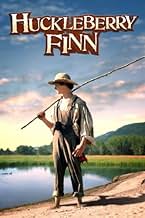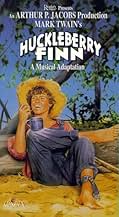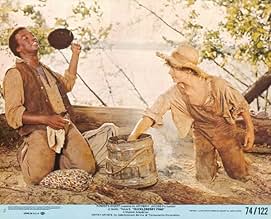Talented filmmaker J. Lee Thompson stages this musical version of Mark Twain's "The Adventures of Huckleberry Finn" with artificial verve, and nothing in it looks quite right or plays at the appropriate tempo. Stolen from his guardians by his delinquent father, Huckleberry Finn stages his own death and hits the Mississippi River with friend Jim the Slave (why the two don't return to the sisters whom Jim works for is never made clear--both he and Huckleberry would certainly benefit from their generosity). Songwriters Richard and Robert Sherman, who also adapted the screenplay, seemed to lose their way musically once their mentor, Walt Disney, died; here, their songs are like leaden chapter stops in the narrative, not that the actors have much musical range. Teen star Jeff East doesn't even have music in his speaking voice, and he crawls through the picture lethargically, talking through his nose as if he had a cold. Paul Winfield fares better as Jim, though this pictorial, phony journey must have seemed quite a comedown after his "Sounder". Cinematographer László Kovács gets some beautiful shots of the raft on the water, but the limp direction and editing makes nearly all of Kovács' compositions look poorly framed. The color schemes are gloppy, with day scenes appearing as dusk and vice-versa. Director Thompson, who makes the white folks look like doddering scoundrels and the black folks look like grinning simpletons, can't work up a cohesive pace for the picture, and it jostles about from one poor vignette to the next. This was a follow-up by financiers Reader's Digest to 1973's "Tom Sawyer"; as with that film, a TV-version was right on their heels, in this case 1975's "Huckleberry Finn" starring Ron Howard and Donny Most. * from ****































